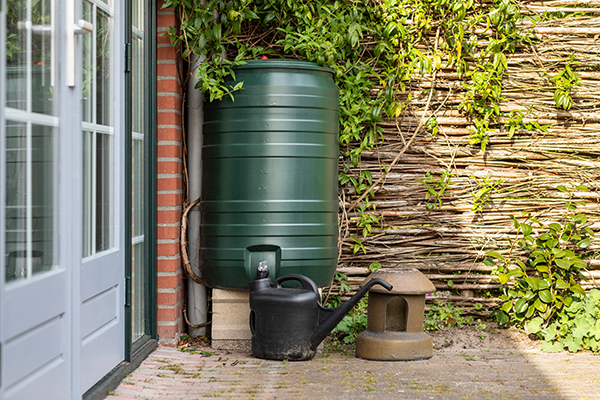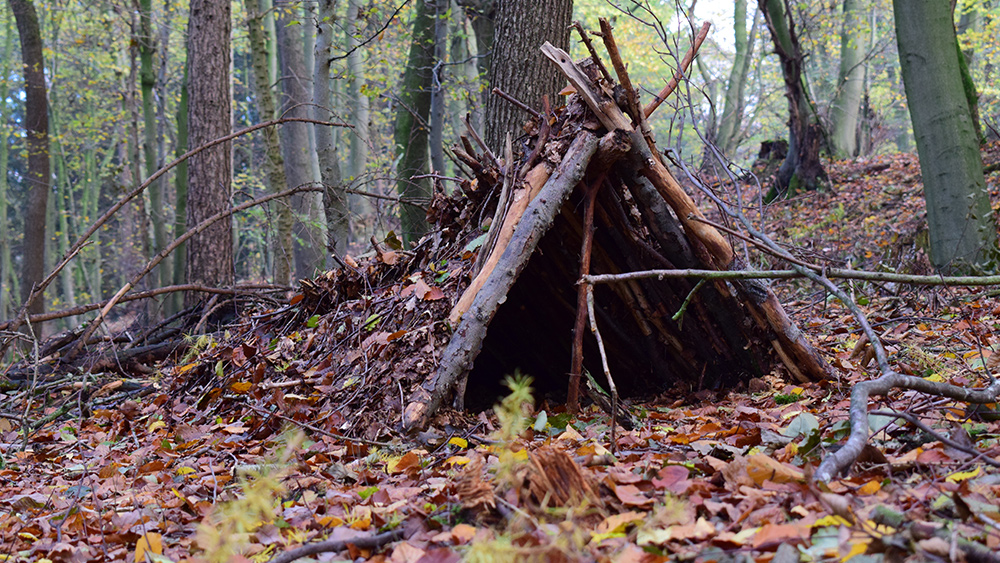
If you're interested in practicing your shooting skills outdoors, you need to know how to make your own shooting targets. Practicing outdoors may help you save on range fees, weather permitting.
The following DIY targets will help improve your skills, and it only takes a few minutes to assemble each one using materials that you can easily buy from a hardware store. (h/t to PersonalDefenseWorld.com)
The PVC stand
This simple PVC stand breaks down into several pieces for easy transportation.
Materials:
- 8 black ABS pipe (1.5 by 24 inches)
- 2 black ABS connector "tees"
- 4 black ABS "elbows"
- 2 wooden furring strips (58 inches in length)
- Cardboard (approximately 23 by 35 inches)
- Stapler or staple gun
Steps:
- Use the ABS connector tees to hold the pieces of pipe that go vertical. The vertical pipes will hold up the target.
- Use the four black ABS elbows to connect the corners of the base to form the square.
- Insert the two wooden furring strips on the two vertical pipes.
- Staple cardboard to the furring strips, then put up a target of your choice.
Since this PVC stand has a wide base, it won't tip over easily even in windy conditions.
Steel shooting target
Materials:
- AR500 steel plate (0.5-inch thick, 8 inches in diameter)
- Folding sawhorse
- 2 carabiners
- Rope
Steps:
- Hang the steel plate on the folding sawhorse using two carabiners and a length of rope. Take note that you can’t tie the rope directly to the steel plate since the latter has sharp edges that will cut right through the rope. Clip the carabiners to each hole in the steel plate.
- Tie the rope around each carabiner, then secure the steel plate to the sawhorse.
- Before you start shooting, place the target at least 10 yards away for safety purposes.
The moving target
This third target system is the longest to build, but it’s fun to practice with it because it’s a moving target. The target is simple to build because it's hand operated, but you will need a shooting partner to get it to work. This target looks like a skateboard with a target on top.
Materials:
- 4 lawnmower wheels (6-inch wheels will do)
- 2 steel rods (0.5 inches thick)
- 4 2x4s (40 inches long and 30 inches wide)
- 2 pieces of ABS pipe (1.5 by 24 inches)
- Screws
- 4 washers
- Push caps (to hold the tires on)
- 2 furring strips (58 inches long)
- 2 eye bolts
- 2 dog stakes (16 by 8 inches)
- 50 feet of rope
- Cardboard
- Stapler or staple gun
- Drill holes in the 2x4s, then run the steel rods – which will act as axles – through them.
- Screw together all of the 2x4s to form the base.
- Put the washers on the steel rod axles.
- Put on all of the tires and push caps.
- Screw the black ABS pipe into the base, then screw the eye bolts to each end of the base.
- Insert the two furring strips onto the vertical pipes, then staple cardboard to the furring strips.
- Finally, put up a target of your choice.
Take the moving target outdoors then decide how far you’d like to move it from left to right. Walk five paces to the left side of the target, then screw the first dog stake into the ground. Next, walk five paces to the right of the target then secure the other dog stake.
Take the rope and run it through each eye bolt on the target and then out to the dog stakes. If you followed the instructions correctly, you should be at least seven yards away from the target with a piece of rope in each hand. Use the rope to quickly pull the target from left to right.
Let your partner stand in front of you and shoot while you pull the target from side to side. Take the time to practice using a moving target to improve your marksmanship.
5 Important gun safety tips
Gun safety is crucial especially if you're practicing outdoors with shooting targets.
- Treat every firearm as if it were loaded. Always double-check the magazine, receiver, and chamber to confirm that the weapon has no ammunition. You should only have your firearm in the ready action position (with a round in the chamber) when you are aiming at a target for target shooting.
- Make sure your muzzle is pointed in a safe direction. A safe direction refers to the direction where a bullet will not strike anybody if there is an accidental shot. (Related: What every woman needs to know before carrying a concealed weapon.)
- Keep your fingers off the trigger. Doing this is the best way to avoid an accidental shooting. If you're using a pistol, rest your fingers on the index point instead of the trigger. When you're about to shoot, aim and point at the target first before pulling the trigger.
- Take note of the target and other things downrange. While you're shooting, keep an eye on your target and everything beyond the target. Before you make a shot, make sure that you know where the bullet will strike and that no one or nothing else beyond the target will be injured.
- Wear eye and ear protection. Safety ear muffs regulate sound spikes, but they still let you communicate with your friends while on the range. Shooting glasses protect your eyes from casings, springs, solvents, and other particles.
Use DIY shooting targets and follow these gun safety tips while you practice your marksmanship outdoors so you can protect your loved ones when SHTF.
Sources include:
Please contact us for more information.





















